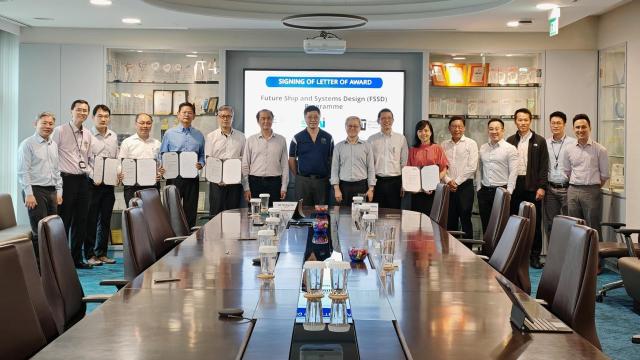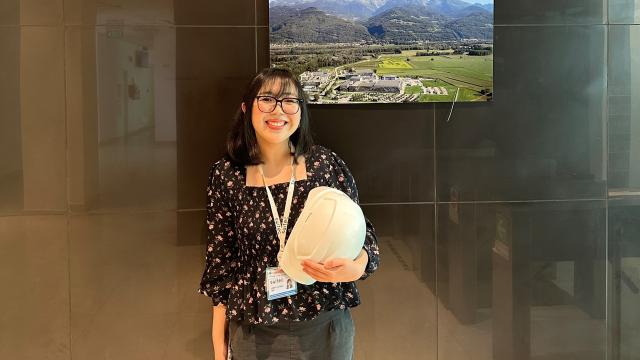
M1 Limited (M1) and the Singapore Institute of Technology (SIT) today signed a research collaboration agreement, to jointly research and develop advanced artificial intelligence (AI) deep learning algorithms and methodology to improve the planning, operations and maintenance of large and complex mobile networks.
There has been exponential growth in mobile traffic data in recent years, with rising mobile data users alongside the development of cloud-based services and Singapore’s Smart Nation initiatives. In order to meet the diverse requirements of emerging mobile applications and complexity of the impending 5G network deployment, this partnership will see M1 and SIT deep dive into the development of AI solutions to reduce manual observation and analysis of huge amount of network key performance indicators (KPIs), which are labour intensive and may be prone to error.
With this collaboration, M1 will set up a deep learning environment at SIT using real-world data from its operational mobile network to provide domain knowledge for data pre-processing, analysis, visualisation and interpretation. SIT will research, model and jointly develop algorithms with M1 for AI machine learning to detect mobile traffic anomalies and predict the volume of mobile traffic.
The aim of this project is to develop a performance anomaly detection methodology by using deep neural networks (DNN) via semi-supervised or unsupervised learning on multivariate time series data. Another goal is to leverage DNN to model and predict active users in mobile networks, based on historical mobile traffic data. This aims to help M1 deliver optimal user experience and improve network resiliency. SIT students will also have opportunities to be involved as part of their Integrated Work Study Programme and projects.
“With the advent of 5G hyper-connectivity and complex end-to-end network slicing capabilities, it is essential for us to understand and deploy AI and machine learning (ML) in network management for anomaly detection, predictive maintenance and automated monitoring of customer-specific KPIs and service-level agreements (SLAs). This collaboration with SIT offers us an exciting opportunity to jointly develop patent for innovative AI model that is specifically designed for cognitive network management. This is our third partnership with a Singaporean university in the past six months, and underscores our ongoing efforts to attract students to participate in experimental learning, apply their classroom knowledge to real-world applications, and gain experience to help them pursue a profession that will impact today’s digital-first economy,” said Mr Denis Seek, Chief Technical Officer, M1.
“As a university of applied learning that aims to connect academic knowledge and skills with real world applications, while enhanced by applied research with industry and community, SIT plays an integral role in the telecommunications ecosystem to co-create technological solutions for the future of Singapore. SIT will focus on developing AI capabilities in the current and future networks, and train future talents to be equipped with telecommunications and informatics skillsets to meet demand for 5G, an enabling technology for future industries. We are confident that the partnership forged with M1 today will provide opportunities for a multi-disciplinary collaboration in future 5G projects,” said Associate Professor Ivan Lee, Vice President (Industry & Community), SIT.
In the last six months, M1 has inked a partnership with the Nanyang Technological University (NTU) to develop Singapore’s first 5G cellular vehicle-to-everything (C-V2X) research testbed and trials, as part of Singapore’s ongoing transition into a global innovation hub for research in connected mobility. M1 also signed a research collaboration with the Singapore University of Technology and Design (SUTD) to embark on a joint research partnership around the remote operation of tactile robots using 5G technology.
About M1
M1, a subsidiary of Keppel Corporation, is Singapore’s most vibrant and dynamic communications company, providing mobile and fixed services to over two million customers. Since the launch of commercial services in 1997, M1 has achieved many firsts, including the first operator to offer nationwide 4G service, as well as ultra high-speed fixed broadband, fixed voice and other services on the Next Generation Nationwide Broadband Network (NGNBN). With a continual focus on network quality, customer service, value and innovation, M1 links anyone and anything; anytime, anywhere. For more information, visit www.m1.com.sg
Facebook: facebook.com/m1limited
Instagram: instagram.com/m1.sg
Twitter: twitter.com/m1singapore
LinkedIn: linkedin.com/company/m1-limited
About Singapore Institute of Technology (SIT)
Singapore Institute of Technology (SIT) is Singapore’s university of applied learning. It aims to be a leader in innovative university education by integrating learning, industry and community as part of its unique pedagogy. Partnering world-class universities, SIT offers applied degree programmes targeted at growth sectors of the economy. SIT also aims to cultivate in its students four distinctive traits, or the SIT-DNA, which will prepare them to be ‘thinking tinkerers’, who are ‘able to learn, unlearn and relearn’, be ‘catalysts for transformation’ and finally, become ‘grounded in the community’.
Established in 2009, SIT currently has six distributed campuses, with its main campus in SIT@Dover. SIT became an autonomous university in 2014, and is expected to move to its new centralised campus in Punggol in 2023. The future campus will be part of the Punggol Digital District, and will feature the Campus Boulevard, which will connect residents to the waterfront and Coney Island.
For more information, visit www.SingaporeTech.edu.sg.
![[FA] SIT One SITizen Alumni Initiative_Web banner_1244px x 688px.jpg](/sites/default/files/2024-12/%5BFA%5D%20%20SIT%20One%20SITizen%20Alumni%20Initiative_Web%20banner_1244px%20x%20688px.jpg)


